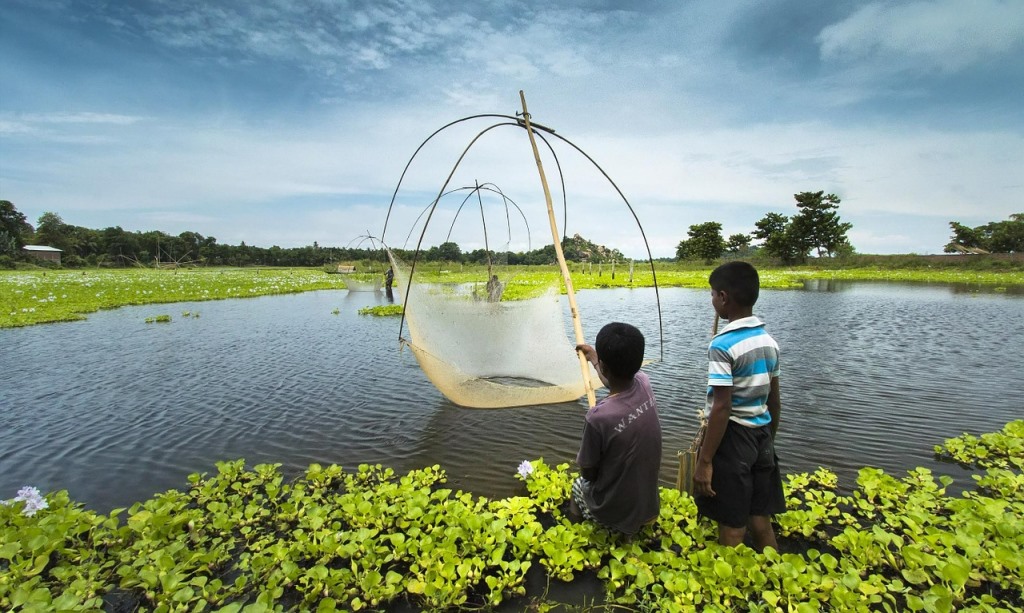In northeastern India, the state of Assam is situated south of the eastern Himalayas along the Brahmaputra and Barak River valleys, and covers an area of 78,438 sq. kilometers (30,285 sq. miles).
Assam is known for Assam tea and Assam silk, and was the first site for oil drilling in all of Asia. The state is known for its higher-than average commitment to protecting nature: Assam saved the one-horned Indian rhinoceros from extinction, along with the wild water buffalo, pygmy hog, tiger and various species of Asiatic birds, and it provides one of the last wild habitats for the Asian elephant. As a result, their economy benefits from wildlife tourism to Kaziranga National Park and Manas National Park, which are both UNESCO World Heritage Sites.
Back in 2012, the government of Assam, with support from the French Development Agency (AFD), launched an environmental restoration and conservation effort called the Assam Project for Forest and Biodiversity Conservation (APFBC) in response to the threats posed by deforestation, poaching, and over-dependence of local communities on forest resources.
Between 2012 and 2019, APFBC reforested 21,000 hectares of land, built 33 flood refuge sites for wildlife, and trained over 6000 members of the local communities in alternative livelihoods to reduce their dependence on forests. The project has also built up the capacities of the Forest Department, particularly its frontline staff, to reinforce its key missions.
Now, on November 4, 2019 AFD and the Government of Assam signed a 50 million-euro project agreement (total budget of 62.5 million euro) to support the State government’s initiative to restore Assam’s forest ecosystems and enhance their biodiversity.
Assam’s forests are one of 35 biodiversity hotspots, possessing a high percentage of endangered flora and fauna not found elsewhere in the world. These forests are home to over 1300 varieties of wildlife and the only natural habitat of the Asiatic one-horned rhino.
This new funding from France marks the launch of the second phase of the Assam Project for Forest and Biodiversity Conservation (APFBC) project, which aims to reforest an additional 12,000 hectares of land, scale up efforts in biodiversity conservation and skill the members of 135 additional communities in different trades.
The project works particularly closely with the women of these communities by empowering them through participatory planning, and training them in new skills that will enable them to revive the local economy, protect forest resources and increase their financial independence.
A unique feature of this phase is department wide Forest Management Information System (FMIS), and leveraging of modern technology such as GIS, Sensors, and Artificial Intelligence for sustainable forest Management and reducing man animal conflict. The project focuses on climate, by supporting the Forest Department in monitoring the role of forests in climate change, and mitigating potential climate-change related vulnerabilities.
Speaking at the event, H.E. Mr. Emmanuel Lenain, Ambassador of France to India said, “This project enhances France and India’s commitment to restoring and preserving rich and diverse natural ecosystems. Biodiversity conservation will remain a priority for our 2020 bilateral agenda, and we look forward to sharing the lessons from this collaboration, which has already yielded tangible results that are being shared in India and international forums.”
Besides Emmanuel Lenain, present during the signing ceremony were Mr. Bruno Bosle, AFD Country Director, and Mr. Jishnu Barua, Additional Chief Secretary to the Government of Assam, Environment and Forest Department.
The Ambassador and his delegation were in Assam over the weekend to assess the impacts of the project so far and interact with the Forest Department staff and beneficiaries. Building on the success of the first phase of the project, this second phase of financing aimed at increasing the project’s coverage area and corresponding impacts, will continue for five years.
AFD is an inclusive public financial institution and the main actor in France’s development policy, working in many sectors: energy, health, biodiversity, water, digital technologies, training. It supports the transition to a safer, more equitable and more sustainable world, fully in line with the UN Sustainable Development Goals (SDGs). Through its network of 85 agencies, AFD operates in 109 countries and is currently supporting over 3,600 development projects. In 2017, it earmarked EUR 11.4 billion EUR to finance these projects.
Featured photo of children fishing in Assam by Vikramjit Kakati from Pixabay.


